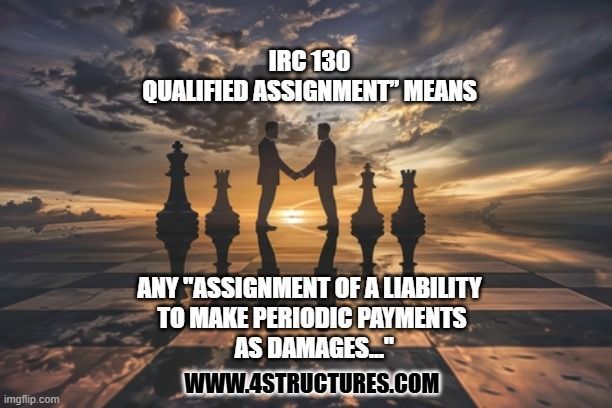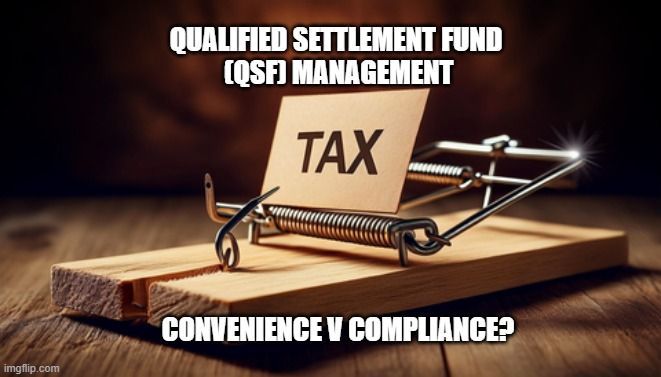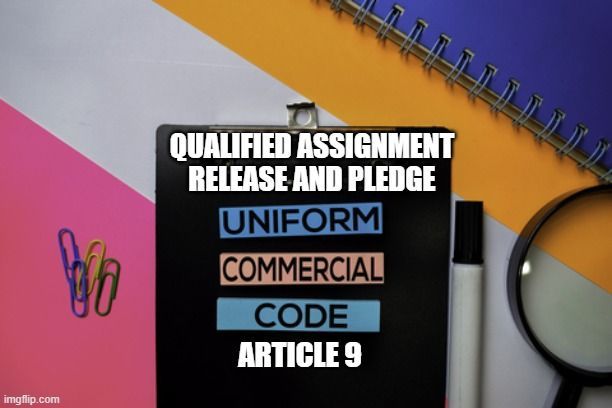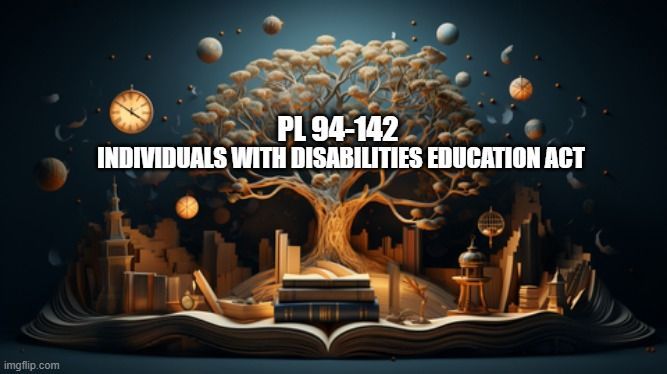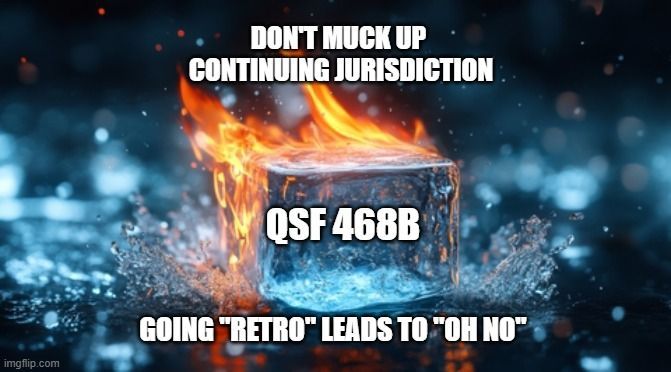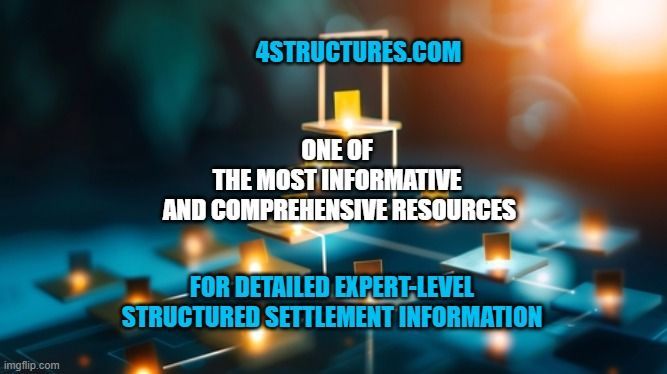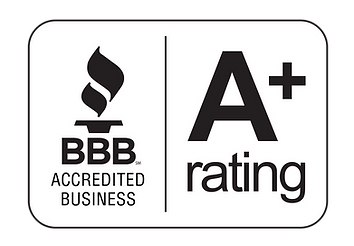Firmwide QSFs Debunked | Firmwide Qualified Settlement Fund
Is a Firmwide QSF (FWQSF) viable under United States Treasury Regs?
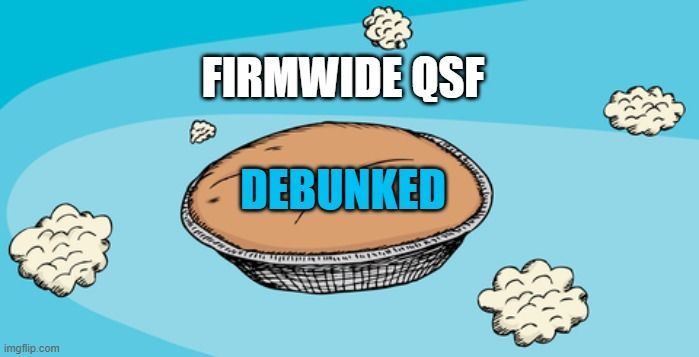
"Unsupportable by Treasury Regulations, Contradicts IRS Authority and case law from U.S. Supreme Court"
In a detailed analysis of the viability of heavily pitched Firmwide Qualified Settlement Funds (Firmwide QSFs) a/k/a Master Law Firm Settlement Accounts under Treasury Regulations Section 1.468B-1, Faegre Drinker Biddle & Reath LLP has concluded that an account established by a law firm for the purpose of pooling funds received in settlement of unrelated tort claims ("A Master Law Firm Settlement Account") is an arrangement that is unsupportable under the Treasury Regulations, contradicts existing Internal Revenue Service (“IRS”) authority, and is inconsistent with case law from the U.S. Supreme Court which governs the federal income tax treatment of contingent attorney’s fee. Let that marinate for a minute.
What is a QSF?
QSF is an acronym for Qualified Settlement Fund. A QSF is used by defendants in certain types of lawsuits to accelerate the income tax deduction which is allowable for the payment made to settle the dispute. A QSF has become an important settlement planning tool for plaintiffs and plaintiff law firms beginning in the 1990s. To qualify as a QSF, the fund must (among other requirements) be established to resolve or satisfy one or more contested or uncontested claims that have resulted or may result from an event (or related series of events) that has occurred and that has given rise to at least one claim asserting liability under certain specified laws. For more general information about Qualified Settlement Funds please click here
What is a Firmwide Qualified Settlement Fund or "Master Law Firm Settlement Account"?
Some in the settlement planning marketplace have developed a product – the Master Law Firm Settlement Account or Firmwide QSF says Faegre Drinker – which promoters of the scheme purport to allow a law firm (rather than a defendant) to establish a QSF for the purpose of pooling settlement funds derived from multiple separate and unrelated tort lawsuits brought by different plaintiffs against different defendants in different cases in different locations on different dates (i.e., not class actions under Rule 23 of the Federal Rules of Civil Procedure), which are alike only insofar as (i) the claims are of a similar nature (e.g., serious physical injury cases generally involving truck accidents, or all physical injury cases occurring with the boundaries of state of Montana) and (ii) the plaintiffs’ only linkage is they are represented and the settlements are handled by the same law firm. The Master Law Firm Settlement Account is advertised as both a tax planning tool for attorneys allowing for bank account-style control of the funds by the attorney with minimal to no third-party oversight, and a back-office solution designed to relieve law firms of the court or a government authority approval process and administration burden of individual QSFs. The principal purported tax benefit of this arrangement is to permit the law firm partners to defer recognizing their fee income until the amounts are distributed to them from the QSF. The Master Law Firm Settlement Account is the funds by the attorney with minimal to no third-party oversight, and a back-office solution designed to relieve law firms of the court or a government authority approval process and administration burden of individual QSFs.
________________________________________________________________________________________________________________________
SIDE BAR
In a slide from a March 2020 webinar, a heavy promoter of firmwide QSFs appears next to the text "Has the qualified settlement fund matured to the point that it's the next generation IOLTA or attorney trust account?"
What is an IOLTA Account?
Every lawyer who handles "qualified funds" must maintain and use an IOLTA (IOLA in New York) account. Lawyers may not place qualifying funds in a non-interest bearing account. Interest earned on deposits held in IOLA accounts are remitted directly to the IOLA Fund by participating financial institutions. Every dollar of IOLTA/IOLA interest supports civil legal aid for low-income residents of the state. Mismanagement of an IOLTA account is one of the most common ethical violations committed by lawyers.
see IOLA.org
What is an Attorney Trust Account?
An attorney trust account is another type of trust account, which may or may not be interest-bearing. For most attorneys, it is a non-IOLTA trust account used for an individual client with a large balance held, such as payments for personal injury. If the account accumulates interest, the interest will be transferred to the customer.
______________________________________________________________________________________________________________________
The Faegre Drinker opinion concludes that The Master Law Firm Settlement Account is unsupportable under at least two rules of statutory interpretation that will apply to discern the meaning of the operative language in Regulations Section 1.468B-1(c)(2), conflicts with the IRS’s stated interpretation of the operative language of the Regulation, and the Supreme Court’s decision in Banks v. C.I.R., 543 U.S. 426 (2005).
"Expressio Unius" and the Last Antecedant
While it may sound like a great title for a movie about a potent unique form of coffee beans, here it's a pair within Faegre Drinker's highly caffeinated reasons for lawyers and law firms to smell some coffee.
The Master Law Firm Settlement Account cannot satisfy the requirement that the QSF be “established to resolve or satisfy one or more contested or uncontested claims that have resulted or may result from an event (or related series of events)”. Regs. §1.468B-1(c)(2). At least two long-established canons of construction preclude the notion that this relatedness requirement can be satisfied based on the same law firm’s prosecution of the claims held in the QSF, versus arising from the same factual event or series of events which give rise to the claim (or claims): (i)expressio unius est exclusion alterius, or “the mention of one thing is the exclusion of another” (“Expressio Unius”) and (ii) the Last Antecedent Rule.
The Faegre Drinker legal opinion says it is noteworthy that none of the factual examples in Regulations Section 1.468B-1 envision, as a qualifying element or predicate, the involvement of the plaintiff’s attorney in the QSF as sponsor of a Master Law Firm Settlement Account, trustee or custodian of an account or fund allowing dispensation of the requirements of Regulations Section 1.468B-1(c)(1).
Under the Last Antecedent Rule, “a limiting clause or phrase…should ordinarily be read as modifying only the noun or phrase that it immediately follows.” Barnhart v. Thomas, 540 U.S. 20, 26 (2006). Here, the Last Antecedent Rule dictates that the phrase “have resulted or may result from event (or series of related events)” in Subparagraph (c)(2) modifies “contested or uncontested claims.” Accordingly, only the event or series of events that give rise to the plaintiff’s legal injury (i.e., the claim; see Banks, 543 U.S. at 435, discussed further below) are relevant for purposes of Subparagraph (c)(2). The Master Law Firm Settlement Account concept does not satisfy this requirement, and therefore cannot qualify as a QSF under Regulations Section 1.468B-1.
What Else Could Go Wrong for the Law Firm Firmwide QSF?
Faegre Drinker identifies these three issues, some with multiple parts.
1.Failure of All Sub-Accounts to Qualify as QSFs in the Event the Master QSF or Another Sub-Account Fails
2.Improper Delegation of Authority to a Private Party
It's unlikely that a court or a government authority has the ability, absent the process of a separate considered review of each separate matter, to issue a single unlimited blanket approval to any future notional accounts sponsored by a law firm or administrator within a common structure. Regulations Section 1.468B-1 does not permit such a delegation of authority. Accordingly, absent such permission, a court or governmental authority cannot delegate its responsibility to approve a QSF to another party. See generally Whitman v. Am. Trucking Ass’ns, 531 U.S. 457, 472 (2001)
Promoters of the Master Law Firm Settlement Account have stated that one of the benefits of the arrangement is that it avoids the necessity of submitting each underlying event to a court or a government authority for review, approval and monitoring; instead, the arrangement effectively offers blind approval of a structure. For these reasons previously discussed, this very likely constitutes an inappropriate delegation of court or government authority to a private party.
3.Constructive Receipt/Economic Benefit Realized by Law Firm
The Faegre Drinker legal opinion says It is likely that the high degree of control exercised by the law firm over the Master Law Firm Settlement Account/ Firmwide QSF, will result in taxable income (with respect to its fee) to the firm under either the constructive receipt doctrine or the economic benefit doctrine in the year that the funds representing the fee are received in the account.
Constructive Receipt
A taxpayer is in constructive receipt of income if the income is credited to the taxpayer’s account, set apart for the taxpayer, or otherwise made available so that the taxpayer may draw upon it at any time, or so that the taxpayer could have drawn upon it if notice of intention to withdraw had been given
Economic Benefit Doctrine
The economic benefit doctrine applies where a taxpayer receives a nonforfeitable right to receive income in the future and the funds are currently set aside to pay that future amount
Cites
- Treas. Reg. §1.451-2(a); Rev. Rul. 66-45, 1966-1 C.B. 95
- Sproull v. C.I.R., 16 T.C. 244 (1951)
Here, if the law firm (as the beneficiary of the Master Law Firm Settlement Account) has the right to disburse to itself (i.e., receive) funds from the account without any meaningful review or approval by a trustee, administrator, or similar independent third-party, the IRS is likely to view the law firm as (i) being in constructive receipt of the portion of the funds transferred to the QSF which represent the law firm’s fee in the year of transfer, because the fund are unrestricted and available for the law firm to withdraw at any time or (ii) having realized the economic benefit of the funds transferred to the account, insofar as they are nonforfeitable, or both.
Last updated July 14, 2024

